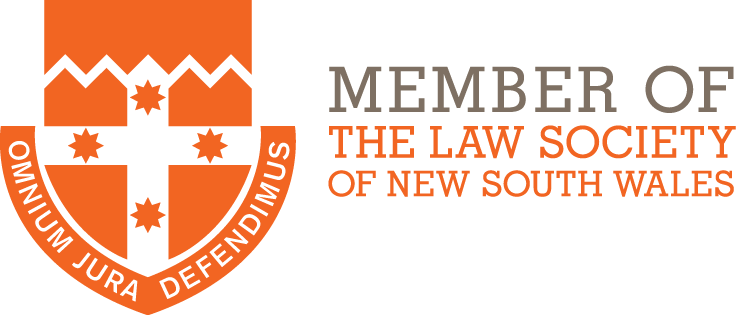Velasquez Legal Wins Appeal in the New South Wales Court of Criminal Appeal
On 12 October 2022, the New South Wales Court of Criminal Appeal handed down its decision in Garcia v R. This decision concerned an appeal by Jose Maria Garcia, conducted on his behalf by Velasquez Legal, against a sentence that had been imposed upon him for a number of Commonwealth and State offences. In the District Court, Garcia had been sentenced to a term of imprisonment of 15 years and 6 months with a non-parole period of 11 years. However, the Court of Criminal Appeal found that the sentencing judge’s original decision was made in error, and instead imposed a lower sentence of 14 years and 9 months with a non-parole period of 10 years and 3 months.
Garcia had pleaded guilty to the following offences:
- Dealing with more than $1,000,000 while being reckless as to whether it would become an instrument of crime.
- Trafficking 451.1g of methamphetamine.
- Failing to comply with the terms of a conditional release order.
- Associating with individuals to facilitate an offence (conspiracy to import 28kg of heroin).
- Supplying a commercial quantity of cocaine.
- Supplying a large commercial quantity of methamphetamine.
It was found that, regarding the first offence, Garcia had met with individuals over the course of multiple years to give them large sums of cash to be laundered so that Garcia would not have to comply with financial reporting laws. In total, it was found that he possessed or handed over more than $7,000,000.
As to the drug trafficking and drug supply offences, it was found that Garcia was a principal organiser of an enterprise trafficking large volumes of methamphetamine between Perth and Sydney. It was also found that he was in the process of obtaining methamphetamine from one of his associates. When police arrested him after a meeting with his associate and found almost 2kg of methamphetamine in his possession, they searched his car and found 558g of cocaine.
The sentencing judge found that all of the offences were serious and that Garcia was an active participant in the drug supply enterprise.
Garcia appealed his sentence to the Court of Criminal Appeal on multiple grounds. It was the following grounds that the appeal court upheld:
- The sentencing judge erred in sentencing Garcia on the basis that the money in the first offence was both derived from “drug or other serious criminal activity” and that he was “reckless to the source of the money being from criminal activity.
- The sentencing judge erred in his assessment of how much of a discount on sentence Garcia was entitled to after pleading guilty to the money laundering offence.
- The sentencing judge erred in setting a non-parole period of approximately 71% of the overall sentence.
“Proceeds of drug or other serious criminal activity”
The first offence to which Garcia pleaded guilty (the money laundering offence) can be established in two ways. Under section 400.3(2) of the Commonwealth Criminal Code, it is an offence to deal with money in two alternate ways:
- Dealing with the money where it is the proceeds of crime.
- Dealing with the money where there is a risk that it will become an instrument of crime.
It was the second of those options which the prosecution had chosen to charge Garcia with, and that was the charge that he pleaded guilty to.
However, in the original sentencing judgment, the sentencing judge found that, in addition to there being a risk that the money could become an instrument of crime, the money was in fact the proceeds of other crime already and that Garcia had been reckless as to this fact.
It has been the law in Australia since at least 1981, when the High Court decided the case of De Simoni, that a person cannot be sentenced for an offence of which they have not been found guilty. The Court of Criminal Appeal found that that is what the sentencing judge had done here: even though there may have been evidence upon which the sentencing judge could have concluded that Garcia was aware of the risk that the money was already the proceeds of crime, and that it actually was the proceeds of crime, to make that finding would ultimately be to punish Garcia for the more serious offence which he hadn’t pleaded guilty to.
When the appeal was argued, the prosecution tried to argue that, even though the sentencing judge might have been in error here, it was only a technical error that didn’t affect the appropriate sentence for Garcia. The Court disagreed. It found that the judge had considered factors which “went beyond considerations which properly informed [Garcia’s] culpability for the charged offence”.
Discount for guilty plea
Ordinarily, someone who pleads guilty to an offence at the earliest possible opportunity is entitled to a 25% discount on the sentence that they would otherwise be given for that offence. When a plea of guilty is entered later on, that percentage can drop. In this case, Garcia pleaded guilty to the money laundering offence and the sentencing judge decided that he should receive a discount of 10%.
Garcia was first charged with a money laundering offence in March 2018. However, this was a more serious charge than the one that he ultimately pleaded guilty to: the prosecution had initially alleged that, not only did Garcia know of the risk that the money might be used as an instrument of crime, he actually believed that it would be.
However, over the next two years, the defence and the prosecution negotiated a plea deal. Garcia would not plead guilty to the offence with which he had initially been charged, but he would plead guilty to the less serious charge of being reckless as to whether the money would become an instrument of crime. On 17 July 2020, the more serious charge was withdrawn by the prosecution and Garcia was charged with the less serious offence. In turn, he pleaded guilty to that offence on 20 July 2020.
It would be expected that, having pleaded guilty to this offence only three days after it was charged, Garcia would be entitled to a significant discount. However, the sentencing judge only gave him a 10% discount.
On the appeal, the prosecution essentially argued that the two charged were the same, and that Garcia should be treated as having pleaded guilty to an offence that he had been charged with two years earlier. The defence argued that they were two different charges, so Garcia should receive the full discount.
Ultimately, while finding that Garcia shouldn’t be treated as having pleaded guilty to an entirely new offence, the Court found that the sentencing judge was mistaken when he treated the offence to which he had pleaded guilty as the exact same one with which he had originally been charged. Accordingly, the Court decided that Garcia should have received a discount of 15%, not 10%.
Non-parole period
The final ground of Garcia’s argument that the Court of Criminal Appeal accepted was that the sentencing judge had made a mistake in setting the non-parole period of Garcia’s sentence.
In deciding Garcia’s overall sentence, the sentencing judge had made assessments of “indicative sentences”. It is a common misconception that, when someone pleads guilty to multiple offences, the sentence for each offence “stacks” on top of the last one. Instead, sentencing judges will almost always allow a large degree of overlap between the sentences for each offence so that an offender does not receive an overall sentence that is completely disproportionate to what they actually did. However, when they do so, judges are still required to give each offence an indicative sentence: this is the sentence that the offender would have received if it had been only that offence that the offender was found guilty of.
When he was giving his indicative sentences in this case, the sentencing judge gave the State offences an average non-parole period of 62.5% of each sentence and he gave the Commonwealth offences an average non-parole period of about 67.2%. However, when he handed down his overall sentence, the non-parole period was 71% of the total sentence. The sentencing judge had not indicated in his judgment that he had any special reason to increase the non-parole period.
The defence argued, and the Court of Criminal Appeal accepted, that this must have been just a simple mistake by the sentencing judge: reading his judgment as a whole, it was clear that the sentencing judge had actually intended to impose a non-parole period of 66.7% of the overall sentence.
Re-sentencing
Having established error on multiple grounds, the Court of Criminal Appeal found it necessary to re-sentence Garcia. This was despite the fact that the prosecution had argued that the errors were not material, and that Garcia should serve the original sentence regardless.
The Court of Criminal appeal found that much of what the sentencing judge had originally found was accurate—the offences were serious, and Garcia took an active part in them.
However, the Court found that, because of the sentencing judge’s error, Garcia should receive a lower sentence for the money laundering offence. Additionally, it found that he should receive a greater discount for pleading guilty to that offence, and that the non-parole period should be less than what was initially imposed. Taking those factors into consideration, and considering Garcia’s personal circumstances, including that the effects of COVID-19 had made his imprisonment more difficult and that he had good prospects of rehabilitation, the Court imposed a new sentence of 14 years and 9 months with a non-parole period of 10 years and 3 months.


